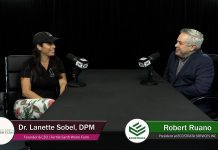
1. What is SEO?
RE: The process of how search engines read websites and populate the information that we find in search engine results. Think about how you go on Google and look for information. You type in a phrase, and Google gives you a list of websites. Ever wondered why one site comes up on the first result page and some on the second or third? The reason is Google (and other search engines) categorize all websites in their database and serve users like us the most relevant results.
2. What’s the difference between organic vs. paid results?
RE: Organic results are the links you find right after the paid ads; they’re based on unpaid natural rankings. If you have a high ranking in the organic results, it means is that the search engine’s algorithm finds your site among the most credible sources to show the end-user for whichever keyword they searched for. You can achieve these kinds of rankings through SEO. While paid results (PPC), allows you to pay to have your website displayed on the first page of the search engine for specific keywords. You will be paying for every click you receive, and once that budget runs out, your site will disappear from the front page.
3. Why is SEO important for small businesses?
RE: It’s equally important for small and large businesses. In other words, it’s important for any business — any information published on the internet can be found online. Google and other search engines are the resources that we turn to when looking up information are. If I typed information on your business what would I find? Positive reviews? Correct addresses? Mentions of your business on news sites? Your business’s social profiles? There’s a ton of information about any business out there that gets populated in search results. I would start there: understanding what information Google is indexing about your business and then start working your way down to find search phrases to associate your website and other web properties with.
4. What’s a good goal to set for your SEO?
RE: I’d say start with a solid website. You can’t have a successful SEO campaign without a well-functioning website. Get familiar with concepts like Google Analytics and Google Webmaster Tools. Even though you are a business owner focused on niche product/service, digital marketing success will come only if you have educated yourself at fundamental level to hire professionals that can help you. If you can’t evaluate the quality of work one is providing for you, it will be very hard to maintain a profitable campaign. To sum it up, early goal: solid website + fundamental knowledge of digital marketing. Once those two are in place, you can start evaluating service providers and setting goals for your SEO campaign.
5. What kinds of businesses should use local SEO?
RE: It’s hard to imagine what businesses should not use local SEO. Local businesses thrive on foot traffic and the area demographic customers looking for services. Think about a directly like Yelp. Every service is there and people trust them to find qualified providers. Google is the same, but it functions in a much broader way.
6. Why does Google My Business matter? What does it have to do with SEO for my website?
RE: Google My Business is the number one step for local SEO. Once Google has verified your business as real, you have the opportunity to appear in what’s called the Google Map results. The respective section in Google populates the nearest search results for a particular service.
7. Should I hire someone to do my SEO?
RE: I’d start with having someone evaluate your website and then continue the conversation about how an SEO consultant can help you build search presence. If you’re in interested in a non-biased, transparent site analysis, one of our Miami SEO specialist can take a look at your site. Make sure you reference this interview!






Comments are closed.